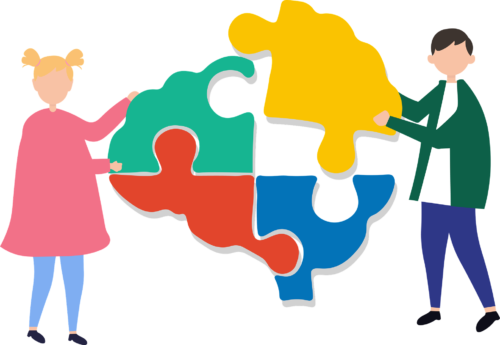Impact of Dropping Asperger’s from the DSM-V
Asperger’s Syndrome Falls Under Category of ASD in DSM-V
A big change is about to take place in the soon to be released Diagnostic and Statistical Manual of Mental Disorders, more commonly known as the DSM-V. Asperger’s syndrome has dropped from the manual and instead it will fall under the category of Autism Spectrum Disorders (ASD).

The name for Asperger’s Syndrome has officially changed, but many still use the term Asperger’s Syndrome when talking about their condition.
The American Psychiatric Association released a statement stating that, “The new criteria
will incorporate several diagnoses from the DSM-IV, including autistic disorder, Asperger’s disorder, childhood disintegrative disorder and pervasive developmental disorder (not otherwise specified) into the diagnosis of autism spectrum disorder for the DSM-5 to help more accurately and consistently diagnose children with autism.”
The decision by the American Psychiatric Association has split professionals on whether this will help or hurt individuals battling these conditions and health professionals trying to help them.
An associate professor of counselor education in educational psychology and counseling at University of Tennessee, Melinda Gibbons states, “There is more publicity about autism in the media… I think the public still only has a vague understanding of the specifics of autism, but many people can now describe the disorder in generalities and/or point to someone they know with the disorder.”
Gibbons is also quick to point out that she has witnessed improved understanding among mental health professionals. “The amount of research on autism and autism spectrum disorders has increased dramatically,” she goes on to say, “Clinicians and teachers working with the k-12 population see the need to understand ASD in their students and help them be successful in school and beyond.”
The increased awareness can be seen in the general public everywhere from television, as in Dr. Dixon on Grey’s Anatomy, to books such as The Curious Incident of the Dog in the Night-Time by Mark Haddon.
The issue is that there isn’t as much known about Asperger’s syndrome. Recent events in Connecticut are prime examples of the great misunderstanding that the public and the media have about the disorder. Gibbons points out that dropping Asperger’s from the manual will make it more difficult for health professionals to care and advocate for their clients because they will not have a specific diagnoses anymore.
Many people don’t understand that there is a difference between Asperger’s and Autism. “Asperger’s is a relatively new diagnosis, only showing up in the DSM-IV for the first time as an actual diagnosis. As a result, the number of students diagnosed with Asperger’s has increased… and we are now starting to see college students and young adults with the diagnosis. Adding Asperger’s as a diagnosis gave clinicians clarity in diagnosing a disorder for clients who showed some signs of autism like symptoms but demonstrated average to above average intelligence and normal language development.”
Jamie Schutte, a professor from the University of Pittsburgh in the Department of Rehabilitation Science and Technology, points out that school counselors might experience more difficulties placing students in appropriately difficult classes once ASD is used instead of Asperger’s. Students with Asperger’s typically demonstrate average to above average intelligence and usually are fully integrated into mainstream classes. The receive supports such as PT, social skills instruction and special rooms for times when they feel overstimulated, but they also tend to do very well in classes and often enter into honors classes. This pathway might be more difficult to maneuver with the ASD diagnosis.”
Schutte goes on to say that she doesn’t believe the change in the DSM-V will impact therapy options. Obviously the way it is processed through insurance companies will change, but she wants to make it clear that treatment plans are based on the individual and not the diagnosis. This means that current treatments should continue without interruption.
It is true that diagnosis is important for a great number of reasons:
- Treatment options
- Public policy
- Planning for needs
- Development of services
- Access to resources (such as grants) for qualified recipients
- Individual attitudes and adjustment to the disability
All professionals will agree on one very important aspect of ASD that each individual person with ASD is different and each individual has different needs and treatment plans. As long as the therapy addresses that individual’s goals, environment, strengths and weaknesses it will provide the best outcomes regardless of where the individual falls on the spectrum.
Th learn more about the signs and characteristics of autism, visit: https://lighthouseautismcenter.com/children-with-autism/autism-characteristics/
Read more about Asperger’s Syndrome here:
Asperger’s Syndrome: Symptoms, Diagnosis and Treatment (nationwidechildrens.org)
What Is Asperger Syndrome? | Autism Speaks
Asperger’s Syndrome – Autism Society. (autism-society.org)
Together, we can unlock your child’s potential
Related News

01/15/2026
10 Simple Self-Care Habits for Autism Caregivers
Caring for a child with autism is rewarding, but can also be demanding in ways that aren’t always visible. Between daily routines, therapy schedules, advocacy, and emotional labor, many caregivers find themselves running on empty, even as they continue to show up for their child every day. Earlier this year, we explored this reality in our blog post, The Power of Pause: Why Caregiver Self-Care […]

01/05/2026
The Power of Pause: Why Caregiver Self-Care Matters
As a new year begins, many families naturally reflect on what they hope the months ahead will bring—more peace, more balance, more support. At Lighthouse Autism Center, we’ll be taking a deeper look at the importance of self-care throughout the month of January, offering resources and encouragement to help caregivers start the year feeling supported and grounded. But […]

11/18/2025
Tips for Picky Eaters and Introducing New Foods
Autistic children are often labeled as picky eaters, but the truth is that they face a unique set of challenges that can make mealtimes extremely stressful. Discover helpful tips on introducing new foods into your child’s diet to make mealtimes more nutritional and enjoyable for everyone at the table. Autism and Food: Tips for Introducing […]


